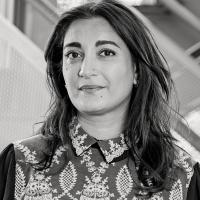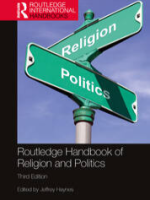What is exceptional about religion?
The chapter in Routledge Handbook of Religion and Politics reviews selected debates that speak to the question of whether religion is or requires something exceptional for it to be properly accounted for in analysis.
They pinpoint different dimensions of an ‘exceptionalism-debate’ across three academic fields: International Relations (IR), the field of Islamism Studies (IS) and the Peace and Conflict Research (PCR) on Islamism and jihadism. What is meant by an exceptionalism-debate is a broad dialogue about how to access religion (as a concept, ideology, or related to conflict) as being different from or similar to other manifestations:
Is it a special category that requires the development of new approaches and theories, does it require more refined understandings of the variations when it comes to conceptualizing religion and the ‘religious’, how does it or doesn’t it differ from other phenomena that might function in the same way or have a high degree of family resemblance.
The ambition of the chapter is to display the multiple dimensions of the exceptionalism-debate, but also to advance our thinking about how to include religion into analysis and account for its significance.
First, the chapter zooms in on IR, where three different questions have occupied the field: Is religion interesting as the dependent or independent variable, is it sui generis in content or in function, and what are the particular dimensions of religion that make it stand out?
Secondly, it looks at the debates on Islamist exceptionalism in IS where four currents are identified: One that consider Islamists like no other actors, one that sees Islamists as being made into the exceptional other as part of an orientalist practice, one that points out that Islamists are like any other actor, and finally one that sees Islamists as similar but not identical with other actors and is occupied with the variations among Islamists.
Thirdly, the chapter looks into the PCR literature and three main questions that have been discussed in the literature on jihadist conflicts appears: one that asks if jihadist conflicts are exceptional, one that looks at similarities and differences between jihadists and other rebel groups, and one that asks whether jihadist conflicts require exceptional conflict resolution approaches?
A focus on the multi-dimensional debates are helpful in order to understand how religion is similar to or exceptional in relation to other forms of large-scale identities and ideologies invoked in world politics.
DIIS Experts




